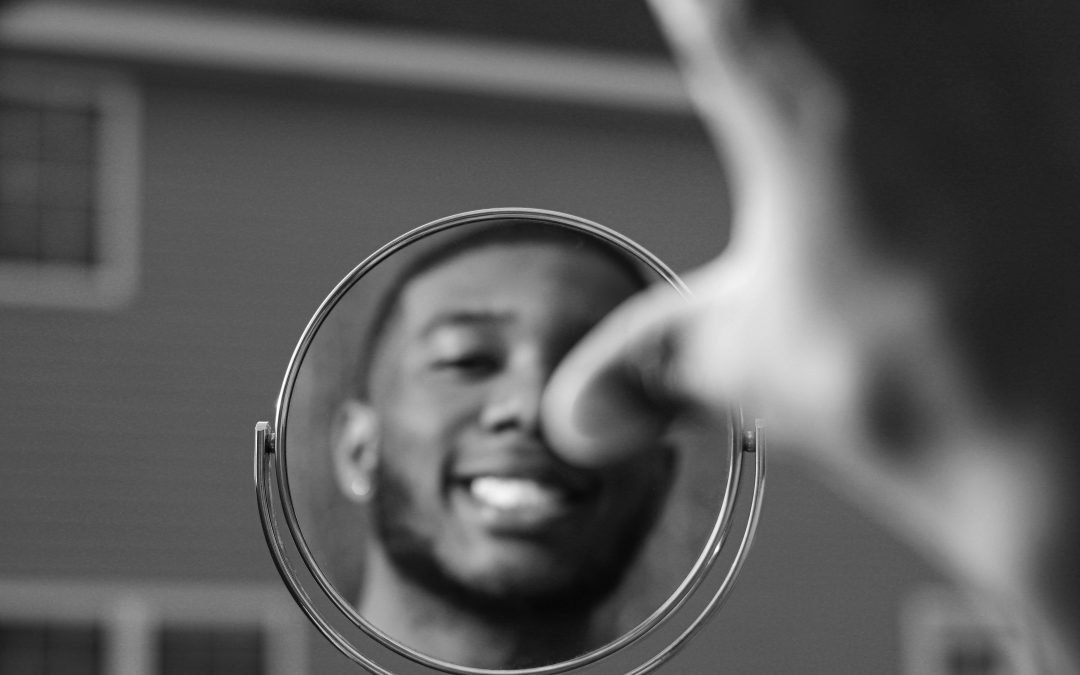
Are You in a Relationship That is One-Sided?
Well, are you in a relationship that is one sided? Obviously if you’ve landed here, you suspect there’s a problem somewhere. Perhaps you’ve searched the problems in your relationship, and this is one of the topics that showed up.
I’m here today to help you determine if being in a relationship that is one sided is the problem you’re facing.
What is a Relationship That is One-Sided?
In a one-sided relationship, you feel unbalanced, as if one of you, probably you, is doing more of the hard work of the relationship while your partner seems to be doing less than his part.
If you don’t live together, you might be the one who calls, texts, or reaches out more often than your partner, and not just by one or two instances a day, but nearly all the time.
If you do live together, you may be the one pulling all the weight by doing all the chores or earning all the money while your partner plays video games, goes out drinking with his buddies, or just mentally checks out.
It’s important to note that a one-sided relationship is ongoing, not just while someone is studying for a college degree or burdened with a sick loved one. This is how the relationship is, regardless of what’s going on in your lives outside of the relationship.
Conversely, a one-sided relationship can be all about control. Perhaps your partner controls all the money, leaving you with a pittance of allowance on which you’re supposed to live. He may even control where you go, who you see, and so on.
How do You Know if You’re in Relationship That is One Sided?
One Person Plans Everything
You plan the dates or events you attend – all of them. You initiate every conversation, every text, phone call, and even email.
When it comes to planning a vacation, that’s you too. You’re the one to schedule every appointment, every activity. Everything.
You may even be the one who manages the finances and determines where monies are spent on extra things, or maybe it’s your partner. It’s one of you, but not both.
One Person Makes All Decisions
Where should you go to eat dinner tonight? The same person always decides.
Should you buy a new home? One person always decides.
Will you take a vacation together? One person always decides.
Whether it’s you or your partner, one of you is the one to make every single decision from what color the living room will be to where you’ll live and what car you’ll drive.
There’s no Meaningful Connection
A truly balanced and happy relationship has a meaningful connection.
You can tell because you’ll feel more like roommates than romantic partners.
You’re like ships passing in the night who rarely see one another or share intimate, romantic moments.
You’re Always the One Who Apologizes
If there is a disagreement between you, it’s you who apologizes and takes responsibility. Your partner never sees these disagreements as his fault and therefore feels no need to repair anything or apologize.
Conflict is a natural part of any relationship, romantic or not. In a healthy relationship, whomever is at the root of the problem in a disagreement will step up, own their role, and apologize, promising to make changes.
Regardless of what your partner tells you, not everything is your fault.
You’re the One Making Sacrifices
You moved to be closer to him, even though it meant giving up the job you love. It was you who pays more than half of the expenses, even though he makes more money.
And it’s you who must buy the big things, like appliances, televisions, and so on.
You even sacrifice your own happiness to keep him happy, ignoring your own wants and needs in lieu of his.
Communication is Lousy
In a relationship that is one sided, the communication often suffers. You feel like every word you say either passes right by him or never reaches his ears to begin with.
If he does seem to hear you, he acts like what you said was either incomprehensible or ridiculous.
The two of you probably rarely have any sort of meaningful conversation. When you try to talk to him, he can’t seem to peel his eyes away from this 100th rerun of some episode of The Big Bang Theory or Game of Thrones.
You Excuse His Behavior for Him
If he’s rude when you manage to get him out with friends, you excuse his behavior. He is tired. He had a bad day at work. His favorite team lost last night.
You also excuse his behavior to yourself. You may tell yourself these same things when he behaves badly, instead of recognizing that he just isn’t putting in his share of the work to keep the relationship going.
The Relationship Exhausts You
Being in this type of relationship is exhausting. Being the one who does everything and shoulders the blame for everything will absolutely wear you out!
You may find that when your partner is out with friends or goes out of town for business, you feel relieved. It’s peaceful and nice when he’s gone, as opposed to when he’s at home.
The tension between you is causing some of this exhaustion, as can the resentment for always being the one to do everything.

The Repercussions of a Relationship That is One Sided
How does being in a relationship that is one sided impact you?
More Stress
This type of relationship creates a lot of stress and anxiety for the person shouldering the load. You may experience sleep issues, depression, and decreased immunity if you’re in a relationship that is one sided.
Decreased Self-Esteem
In a relationship that is one sided, you’re always undervalued, which then makes you question yourself. Your self-esteem and self-worth are compromised.
It will also give you a false reason to believe that you can’t be good in any relationship because you can’t seem to do this one right.
Loneliness in a Relationship That is One Sided
Because you’re doing everything by yourself, you may feel lonely. Your partner is physically there, sometimes, but emotionally, he’s nowhere to be found.
A romantic partner should be your sounding board when you’re working something out. He should be there to catch you when you stumble. If you’re having a rough time due to a loss of some sort, he should be the one who’s there holding you up.
None of that happens in a one-sided relationship.
Resentment and Frustration
There’s no doubt that it is frustrating to be in a relationship that is one sided. And it seems that no matter how hard you try to get him to engage in the relationship, it’s still all you.
As a result of being the one to do everything, you may feel resentment towards him, which is a natural reaction.
But being frustrated and resentful in a relationship isn’t creating a healthy environment, as you can imagine. I’m not saying it’s your fault. I’m saying it’s time to make some changes.
What Causes a Relationship That is One Sided?
Poor Communication
Just like poor communication can be a result of a one-sided relationship, it can also be the cause of one. If one of you has tried to express yourself, but the other partner isn’t really hearing the other, the unheard partner may retreat.
Why talk if nobody is listening?
This same poor communication can become a barrier to fixing the problem. Already feeling unheard, the partner may choose to stay aloof and distant.
Insecurity – Low Confidence
When one partner is battling low confidence, they may feel as if they don’t deserve a good relationship.
This causes that partner to overcompensate by being the person to do everything and try super hard to make sure he/she is irreplaceable.
Usually, when one partner has low confidence, so does the other, so there are confidence issues going to war every day.
Passive-Aggressive Behavior Becomes the Norm
In a passive-aggressive relationship, the partner who exhibits these tendencies will create unnecessary burdens on the other partner, making the other partner shoulder more of the energy and effort of the relationship.
The passive-aggressive partner may manipulate through tactics like the silent treatment, procrastination, sarcasm, or claiming to be unable to do certain tasks, forcing the other partner to do them.
This type of behavior also includes playing the victim as a means of avoiding responsibility for their actions.
Can You Fix a Relationship That is One-Sided?
If you both want to shift to a healthier relationship, then yes, a relationship that is one-sided can be repaired.
But the key is that you both must want to repair things.
There are a few key changes you both must be willing to make.
Talk and Listen
When people speak of effective communication, they often only think of talking, but the best way to be a good communicator is to be a good listener.
Too many times, we’re speaking with someone who is already working on their response, only half tuned in to what you’re saying. If you ask them a question, they may not even know what you asked.
Be willing to be open and honest about your feelings, and use “I feel” statements instead of “You always”. It’s harder to argue with someone when they’re sharing how things make them feel.
Better communication helps you both feel heard and validated.
You cannot be afraid to express your needs to your partner for fear that he’ll break up with you. These are your needs, and if he cannot meet them, then he isn’t the right person for you anyway.
Change Your Behaviors
Just because you’ve been the one to cook, clean, and do everything else doesn’t mean you need to keep being that person. If you believe some of those tasks should be shared, then don’t do them yourself all the time.
If you think texting back and forth should be initiated more equally, stop sending texts as often.
By not doing those things, you’re leaving a space for your partner to step up or step in and fill the void.
Accept Your Partner’s Behavior
Sometimes, you need to meet someone where they are. If he’s been messy for his entire life, the odds of him changing aren’t that great. He might not have the skills to be anything but messy.
And some people are naturally introverted and aren’t likely to engage in a lot of social activity or conversation.
There are also people who don’t know anything about cooking and were never once asked to clean up the kitchen, so they simply don’t have the skills.
What you need to do is determine if your partner is doing these things as a control mechanism, or if they really just don’t have the skills necessary to interact as you expect them to.
If this is how this person is and you cannot accept that, then it’s probably time to move on to another relationship. Someone will change if they want to, but their ability to change also relies on the skills they possess.
Couples Therapy for Relationships That are One-Sided
A couple’s therapist is a great resource for working on these issues. If both of you truly want to make your relationship work, this type of therapy can sort out the issues and give you both skills to move past the problems.
Should You Get Out of Relationships That are One-Sided?
This is a very personal decision, but I can give you a few things to think about as you sort it out.
The first thing to consider is whether this situation is fixable. Sometimes, it just isn’t. Your partner doesn’t want to change, and no amount of communication is going to change that.
Another thing to think about is whether you can live with this person’s idiosyncrasies. If this is just how he is, you need to either accept him that way or decide you don’t want to be the heavyweight in the relationship and get out.
Something else to think about is how emotionally distressing and maybe physically challenging this situation is for you. If you find yourself extremely stressed or anxious, then it’s not the right relationship for you.
And consider this. How is this relationship impacting your work life and your friendships or relationships with family? If the impact on any of those is negative and there seems to be no fixing it, it’s time to move on.
And finally, if you’ve lost your sense of self and individuality, it’s probably time to end the relationship. You should never compromise your values and morals for someone else. Your needs are just as important as your partners, but if you aren’t having them met, it’s time to go.
Wrapping Up
Being in a relationship that is one-sided can be so very frustrating, stressful, and unfulfilling.
Understanding where your partner is coming from helps you make a decision about whether this relationship is the right one for you.
It’s not fun to sit back and re-evaluate the choices you’ve made, but sometimes, it’s what we need to do to keep moving forward. If you aren’t happy now in the relationship and no positive changes are made, you won’t be happy in a few months or years either.





































